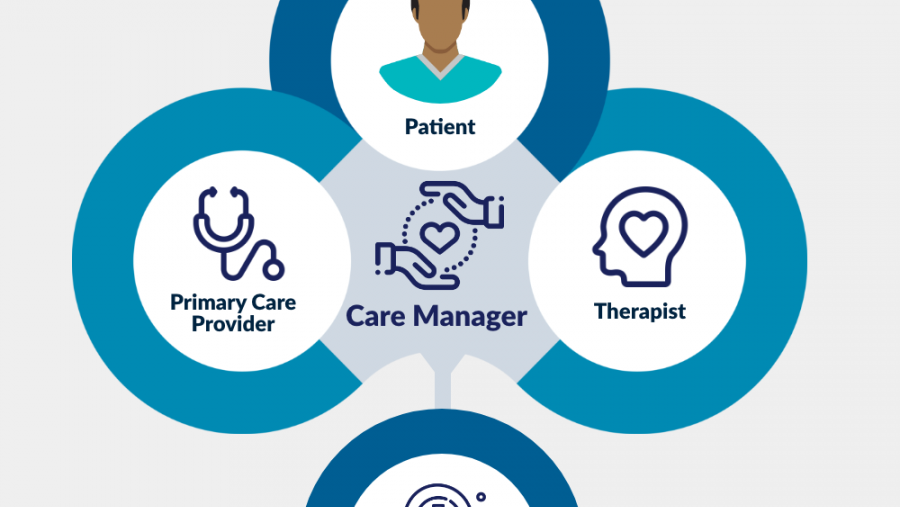Optimizing Care for People with Opioid Use Disorder and Mental Health Conditions
Overview
The Research Need
Co-occurrence of mental illness and opioid use disorder remains high. Findings from the 2023 National Survey on Drug Use and Health suggest that 20.4 million adults in the United States had a substance use disorder and any mental illness, and 6.8 million adults had a substance use disorder and a serious mental illness. Among those with any mental illness, 6.1% misused opioids. Among those with a serious mental illness, 7.9% misused opioids. A 2022 systematic review reported that among people with OUD, the prevalence of current depression was 36.1%, anxiety was 29.1%, attention-deficit/hyperactivity disorder was 20.9%, PTSD was 18.1%, and bipolar disorder was 8.7%. Among those whose deaths are associated with opioid overdose (more than 81,083 in 2023 alone), up to 30% may be due to suicide, and nonfatal overdoses involving opioids are also associated with elevated suicide risk. Despite this clinical need for people with co-occurring opioid use disorder and mental health conditions and/or suicide risk, access to evidence-based treatments remains low.
About the Program
This program supports innovative research to develop, optimize, and test approaches to improve delivery of treatments and services for people with co-occurring opioid use disorder, mental illness, and/or suicide risk. To expand the reach of effective strategies, this research addresses access, continuity, quality, equity, efficiency, value, and clinical outcomes of care.
Research in this program leverages strong, interdisciplinary research-practice partnerships to diagnose and treat opioid use disorder and mental illness. Because many individuals who access mental health care quickly fall out of care and/or do not receive guideline-concordant treatment, this research will develop screening methods to identify people with co-occurring conditions and assess the cost, effectiveness, and sustainability of interventions and services in rural and urban settings and in areas with a shortage of health professionals.
This research also tests the relative contributions of various care components for overall effectiveness in individuals with opioid use disorder and mental illness, toward optimizing multi-component service delivery interventions.
Open Funding Opportunities
There are no Open Funding Opportunities at this time.VIDEO: Stigma Prevents Better Pain Management and Addiction Treatment
Joshua Gordon, M.D., Ph.D., former Director of the National Institute of Mental Health, discusses how researchers are considering stigma when planning ways to address the opioid crisis.
Research Examples
Research supported by this program includes studies to:
- Use pragmatic and optimization designs to test deployment-focused interventions in existing clinical practice settings in high-need locations
- Serve diverse patient populations, including racial and ethnic minorities, pregnant women, and participants younger than 18 years of age
- Answer research questions about cost and cost-effectiveness
- Streamline workflows through routine screening and efficient referral pathways to medication-based treatment for opioid use disorder and mental illness
- Identify high-value components of the collaborative care model and other multi-component service delivery interventions for use in patients with co-occurring mental illness and opioid use disorder
- Build new service-delivery models for people with opioid use disorder and co-occurring mental health problems and/or suicide risk
- Brandeis University – Massachusetts
- Hennepin Healthcare Research Institute – Minnesota
- Henry Ford Health System – Michigan
- Kaiser Foundation Research Institute – California
- Rand Corporation – California
- The Ohio State University – Ohio
- University of Connecticut School of Medicine – Connecticut
- University of Massachusetts Medical School, Worchester – Massachusetts
- University of Michigan – Michigan
- University of Pennsylvania – Pennsylvania
- University of Washington – Washington
Contact
Participating NIH Institutes, Centers, and Offices
View Other Research Programs in This Focus Area
- Collaborative Care for Polysubstance use in Primary Care Settings (Co-Care)
- Optimizing the Duration, Retention, and Discontinuation of Medication Treatment for Opioid Use Disorder
- Preventing Opioid Use Disorder
- Prevention of Progression to Moderate or Severe Opioid Use Disorder (STOP)
- Sleep Dysfunction as a Core Feature of Opioid Use Disorder and Recovery
 U.S. Department of Health & Human Services
U.S. Department of Health & Human Services



